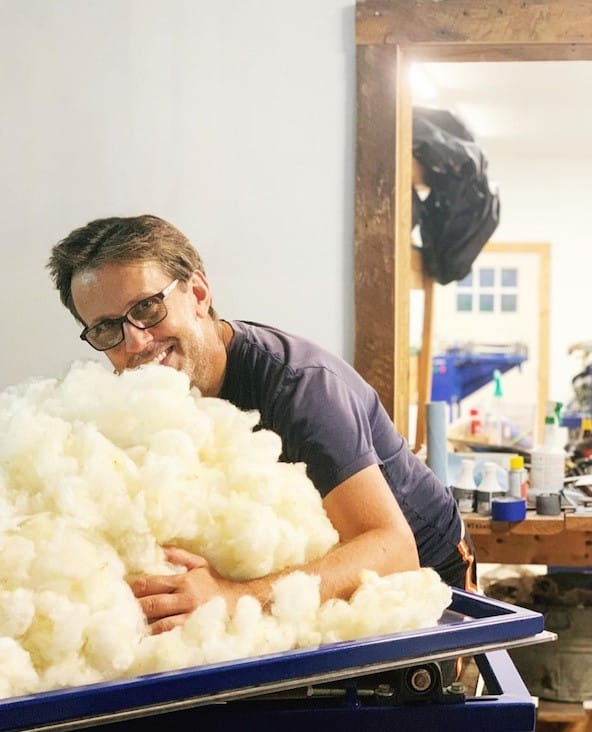The Rural We: Lewis Cleale
Lewis Cleale is transitioning from the Broadway stage to fiber processor in Hillsdale.

Lewis Cleale is transitioning from the Broadway stage to fiber processor in Hillsdale.

Hillsdale resident Lewis Cleale is the proprietor of the Hudson Valley’s newest artisan fiber-processing mill, Nobletown Fiber Works, which produces yarn and fiber products for farmers in the greater tri-state fibershed Originally from Maine, Lewis has called Hillsdale home since 1998, when he purchased and restored an 1825 Federal home in the hamlet. Before learning to become a fiber processing maven, he was an actor and singer on Broadway, but now — although he's still appearing with orchestras and will soon be doing a studio recording of "The Fantasticks" — he relishes “living like a normal person and having a weekend.” During Hillsdale’s second Workshop Experience Weekend May 7-8, Cleale will be bringing participants to Nobletown Fiber Works for two classes “Sheep to Yarn: An Introduction to Fiber Processing,” and “From Yarn to Cloth: An Introduction to Tapestry Weaving.”
I grew up in Maine but went to the University of Miami to study finance. I met a singing teacher who recognized that I had a good voice. I’d planned that maybe I’d go to law school and be an entertainment lawyer, but this voice teacher and a New York actor she knew conspired to persuade me not to go to law school, but become a singing actor. That’s not something a kid from Maine does. But I auditioned for a theater program tin Jupiter, Florida that Burt Reynolds used to run and he told me, “I wouldn’t want to have to follow you.” So I thought I’d be okay in show business if Burt Reynolds thinks I good enough.
I moved to New York, got an agent, and never had more than a month off after that. I did about seven Broadway shows, tours, TV, voice work (I was in “Frozen”) and worked at “Book of Mormon” for a number of years. In 1998 I bought an 1820s period home that only had three walls and started fixing it up. I was on tour in “Sunset Boulevard” playing Joe Gillis opposite Petula Clark’s Norma Desmond, and I wanted to quit, but she advised me to stay on so I could finish the house.
I was racking my brains trying to figure out a business idea for Hillsdale so I could live like a normal person. The fiber mill came out of that desire. I’d bought 40 acres of land about five years ago and thought maybe I’d have sheep or alpaca in my next life. Then I thought, people have to shear these animals — what do they do with the fiber? I researched fiber mills and found there aren’t enough of them. There’s a 12-15-month waiting list at those places.
I bought the (used) equipment I needed, learned how to work it, and as I got into it, I liked it. It’s scienc-y and mechanical. I thought if I could master it, it would be enough to make a living and live in Hillsdale. I renovated two of the buildings on the property and added two more, put in a water supply and septic. There’s a cabinet shop in the middle of the property. Eventually I’ll have a retail shop in front.
The people in the fiber world will find you. I’ve got probably a five-month backlog with many fiber customers in the queue. Eventually I’m going to offer yarns that I’ve designed and manufactured on site sourced from local fiber, plus a natural dyes garden and fiber classes. For the Workshop Experience weekend, I’m bringing in Margot Becker, a Hudson-based artist, weaver and educator, to teach the two classes.
I’m also planning to raise a small flock of the world’s tiniest sheep breed, Ouessant. I have a lot more to learn, but this is a real business and there’s a real need for fiber processing.